The Dallas Morning News published an interesting story over the weekend about Hal Brierley, one of the pioneers of American’s AAdvantage loyalty program. In 1980 he was brought in as a consultant with American to help create AAdvantage, which was launched shortly thereafter.
The article focuses on his perspective on loyalty programs now, some 35 years later. Interestingly he thinks that many loyalty programs have become too rewarding, and that in 20 years programs like AAdvantage will be viewed as the stupidest things done by businesses in the 20th century.
What’s the future of loyalty?
The entire article is worth a read, so I’ll just touch on the highlights. First Mr. Brierley talks about his view of “Loyalty 3.0,” (correctly) pointing out that the most valuable asset people have is their time:
“My vision is Loyalty 3.0 — where do we go next?” says Brierley, who recently announced the sale of his namesake company Brierley+Partners Inc. of Plano. “Our most valuable currency is our time, and I am broke. Share of attention is going to be as important to marketers as share of wallet. That’s the bottom line.”
He also (correctly) points out that we’re a pretty incentive-based society:
“We’ve become an incentive-based society, whether it’s which airline that you fly, the hotel you stay at or the credit card that you use,” Brierley says in his Highland Park home.
Have programs become too generous?
But he fears that programs have become too rewarding, and that they’re not sustainable:
But the problem he sees is that many airline, hotel, retail and other rewards programs have become too rich for the benefits drawn by the companies offering them.
“I fear that 20 years from now, programs like AAdvantage will be viewed as the stupidest thing done by businesses in the 20th century,” he says. “ ‘Why did they spend all this money?’ ‘Why did they give trips to Hawaii?’”
Interesting perspective. What makes him say that?
A few years ago, he looked at “the excessive riches of AAdvantage” and found that an executive platinum customer (someone who logs 100,000 miles in a year) could make three round trips to San Francisco on $250 weekender fares and earn a free $2,500 coach ticket.
“Do the math, and there’s something wrong with that,” he says. “Programs need to evolve toward a sustainable, profitable structure that’s still desirable for the customer. Getting some sanity back into the program makes sense.”
First of all, I don’t doubt that this guy is brilliant. Loyalty programs are just about my life, so I guess this guy is sort of a hero (even though I hadn’t heard of him specifically before reading this article).
I do agree with him that of course there are going to be members of loyalty programs who are disproportionately rewarded. I mean, there are people being disproportionately rewarded in every aspect of society. But they’re outliers, and ultimately shouldn’t impact the overall strategy of the program.
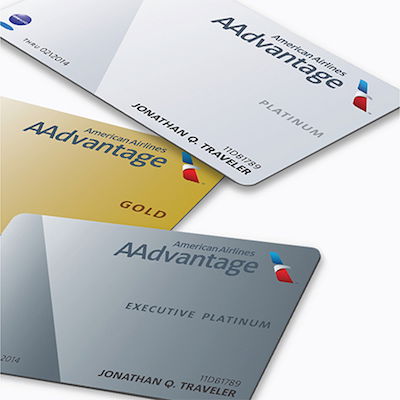
But here’s where I disagree with him:
American might not be in business if it weren’t for AAdvantage
Let’s be honest for a second. AAdvantage isn’t what drove American into bankruptcy, though it may very well be what prevented the airline from liquidating. When American was in bankruptcy, Citi pre-purchased one billion dollars worth of AAdvantage miles. That’s how big this business is, and that’s how much of a risk Citi was willing to take to keep American alive.
So the “stupidest thing done by businesses in the 20th century” might just be what kept American in business.
Loyalty programs already are sustainable
I think Mr. Brierley is taking a 1980s approach to loyalty programs, and not considering what they’ve morphed into 35 years later.
AAdvantage isn’t a frequent flyer program. It’s a frequent buyer program. And a frequent diner program. And a frequent car renter program. And a frequent shopper program. And…
The point is, loyalty programs are, for the most part, already extremely profitable. AAdvantage isn’t a cost center, but rather a profit center for the airline. They’ve transformed the program into something which simply rewarded people for flights they’d take anyway, to something which has engaged people in all aspects of their lives.
What’s a $2,500 ticket, really?
I think this is the most interesting claim, though. Mr. Brierley claims that an Executive Platinum member could “make three round trips to San Francisco on $250 weekender fares and earn a free $2,500 coach ticket.”
This argument suggests that airline pricing is rational and that it reflects the cost of providing that service.
What’s the opportunity cost of filling a seat which would have otherwise gone out empty? Next to nothing. The assumption seems to be that someone redeeming miles would otherwise be willing to pay for that seat, which in extreme cases typically isn’t true, in my experience.
Just because airlines use sophisticated revenue and inventory management, doesn’t mean that fares somehow reflect the cost of providing that service. In other words, I redeem miles for international first class travel last minute all the time, which would retail for $10,000+. Would I otherwise pay $10,000+ for those seats? Nope. What’s the cost of me sitting in that seat if it would have otherwise gone out empty? Very, very little.
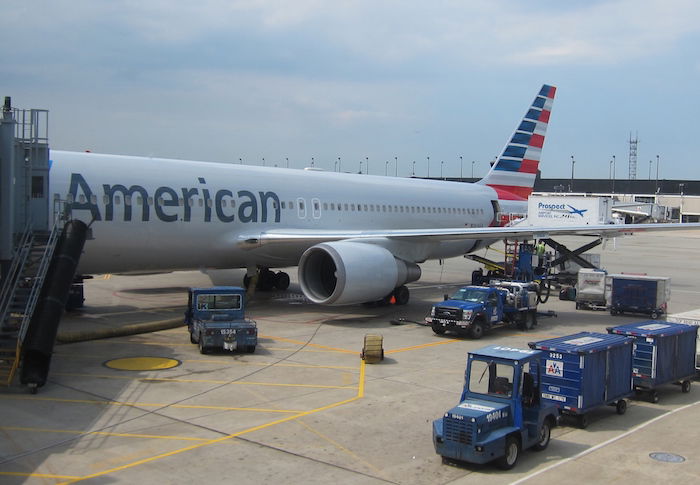
Here’s his solution
So what does he suggest airlines do in place of the current system?
Instead of a free trip to Hawaii, make the incentive $500 toward the purchase of a ticket to the islands, he says.
Another example: Give customers $10 toward a future purchase after they spend $100. “We’ve found that people do use the $10 as they spend more money,” he says. “If done properly, these programs are profitable for the company and very rewarding for the consumer.”
Again, I do think this is a dated approach to loyalty. Perhaps this is Mr. Brierley’s solution to rewarding those mileage running Executive Platinum members, but what about the whole other side of the loyalty program?
Over half of airline miles nowadays are issued through non-flying means, so why on earth would I bother earning airline miles rather than cashback if my reward were as restrictive as a dollar off coupon to a destination? Not happening.
Bottom line
I enjoyed reading this guy’s perspective, since he’s no doubt much more knowledgable than I am.
It’s possible I’m completely off base, though his perspective strikes me as being a 20th century view of loyalty programs, rather than a 21st century view.
These aren’t frequent flyer programs anymore, but rather frequent buyer programs. Not only do they engage people in the airlines’ brands, but the airlines also make a pretty penny in the process.
Which isn’t to say things won’t change — we’ve certainly seen that from Delta SkyMiles and United MileagePlus — but I don’t think the logic completely holds up.
Where do you stand on Mr. Brierley’s views on loyalty programs?
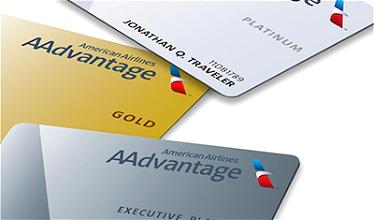


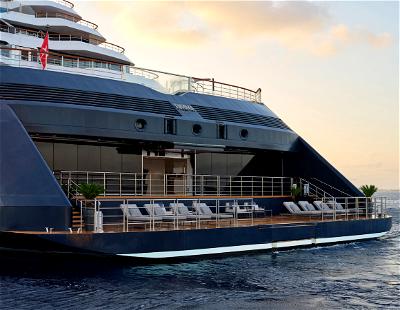
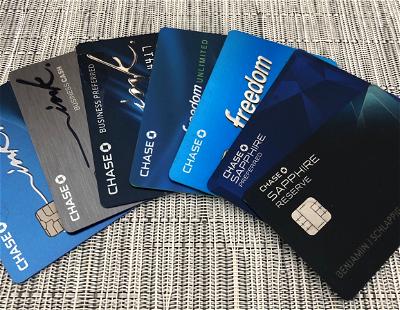
Fully agree with Bob.
I think that loyalty programs have arbitrage opportunities for those that are very knowledgeable of the various programs (i.e.- readers of this blog), but I agree that the programs are generally very lucrative to the airlines and hotel brands. Tweaks will be made to various aspects of the programs over time to close certain loopholes and opportunities, but I agree that it is unreasonable to say that the programs are generally unsustainable. They are here to stay.
Agreed, Lucky, it's definitely not the dumbest business idea of the 20th century. And it's a little baffling that he's saying it is, considering his pivotal role in creating it. But it still might viewed as dumb that it wasn't EVEN MORE profitable than it already is. By switching to revenue-based redemption, they'll probably keep the majority of loyalty (most people haven't the first clue about the value of miles or how to maximize) while...
Agreed, Lucky, it's definitely not the dumbest business idea of the 20th century. And it's a little baffling that he's saying it is, considering his pivotal role in creating it. But it still might viewed as dumb that it wasn't EVEN MORE profitable than it already is. By switching to revenue-based redemption, they'll probably keep the majority of loyalty (most people haven't the first clue about the value of miles or how to maximize) while gaining a ton of profitability. The profits are surely there for the taking.
Then again, if you go as far as he suggests, and give $10 towards future purchase after spending $100, that's going to backfire. If you can redeem in such small increments, why would anyone stay loyal? Part of the reason they stay loyal now is because it can often take a while to build up miles towards a goal, which keeps you flying that airline. If you can redeem in those small increments, they're only guaranteeing that you take one more flight, at most, to redeem that discount. Even then you might not if another airline is cheaper than your ticket with discount.
Ultimately, I agree with the premise that offering up empty seats is relatively little cost to the airline but enormous value to frequent flyers who stay loyal to a brand. But because, as you say, FF programs don't really reward loyalty to a specific airline anymore, more to a specific type of points currency, I'm not really sure what's in it for the airline (especially as FFPs get spun off into their own entities). It's a complex situation and I'm not really sure either side is as simple as suggested here.
@ Juno This tidbit is actually in the bottom of the story that Lucky is discussing as well. Also, nowhere in that article did I see anything about the perks you mention are going away, just the value of redeeming miles going down, so it sounds like you wouldn't really be affected by this plan to shift to revenue-based redemption.
I read from Loyalty traveler that this guy bought AA Airpass in 1983 for him and his wife for $352k and so far has gotten almost $10 million bucks worth of flights and 22 million AA miles. Perhaps he is realizing that too many other people are crowding his First class cabins and want to thin it out, now that he has milked/ benefited more out of FF program than any of us could even...
I read from Loyalty traveler that this guy bought AA Airpass in 1983 for him and his wife for $352k and so far has gotten almost $10 million bucks worth of flights and 22 million AA miles. Perhaps he is realizing that too many other people are crowding his First class cabins and want to thin it out, now that he has milked/ benefited more out of FF program than any of us could even dream of.
Without FF program there is no doubt AA would not have me as a loyal Platinum. My flight selection would just be based on fare and directness. That little extras you get as an elite, board ealier, free bags, more leg rooms, keeps most of us trying to reach the elite status year after year.. earning them more money than they otherwise would have lost.
@Lantean - "something like “it’s so awesome Delta has no award calendar, i was so bothered by its existence before”"
Delta has an award calendar, and it's actually usable now. Or are you referring to their lack of an award CHART?
Mr. Brierley failed to address one very important component in his equation.
most of the core members (consumers) of loyalty programs would pay a bit more to attain their goal. i, for one, certainly do.
@DavidB You realize this guy isn't a journalist, right? Did you even click the article or read Lucky's blog post carefully? The guy is a consultant who helped create AAdvantage.
@Lucky sez: "What’s the opportunity cost of filling a seat which would have otherwise gone out empty? Next to nothing. "
You took the words right of my mouth! Three $250 T-CON trips earning one enough miles for a $2500 ticket that otherwise would not have been sold costs the airline nothin'.
He might have "invented" the legacy FF system but Mr. Brierley’s views on loyalty programs sound antiquated, even sophomoric.
@ DCS -- WE AGREE ON SOMETHING. YAY!!!!!
Hardly, compared to the awards when FF programs started, today they're a pale shadow of themselves. In part when the programs began miles were earned either from flying or using travel partners like hotels and rental cars. Today credit cards dominate and thus dilute the value of programs and their awards. As already noted, many of the examples given are incorrect. But who can compare a 140K return award to Asia in F with 30...
Hardly, compared to the awards when FF programs started, today they're a pale shadow of themselves. In part when the programs began miles were earned either from flying or using travel partners like hotels and rental cars. Today credit cards dominate and thus dilute the value of programs and their awards. As already noted, many of the examples given are incorrect. But who can compare a 140K return award to Asia in F with 30 years ago when 140K got two F tickets to any destination the airline flew, plus a week's luxury car rental, plus a week in a suite at any participating hotel! FF programs are profit centres for their airlines too, so can't blame the round of bankruptcies on these programs either. Journalists shouldn't write about subjects they know little or nothing about...
I really don't understand this guy's point. Someone "could make three round trips to San Francisco on $250 weekender fares and earn a free $2,500 coach ticket" -- fine, but that's no longer possible with United and Delta, it's never been possible with Southwest, and it is very likely soon to be history with AA.
Airlines realized what this guy was saying a long time ago and did something about it. Next?
@Emily - the airline can't know with absolutely certainty that no one else would have taken a seat that was booked using miles, but they consider that when deciding how many seats to release for booking or upgrading using miles, and balance the potential revenue loss vs. revenue gained from the programme, both in terms of passenger loyalty when earning the miles and from revenue earned by selling miles to third parties (mainly credit card issuers.)
You're overthinking this. He's a consultant who says that (surprise) loyalty programs need more advice from consultants, specifically ones pitching his view. This is just the same as the nonsense that Ideaworks puts out - they're just selling.
@ Andrew C -- Hah, fair enough!
@brianna hoffner
but what are the bloggers supposed to say? do you want them to lie?
something like "it's so awesome Delta has no award calendar, i was so bothered by its existence before" or "I love the fact that United charges 110k for one way F on 8 hour partner flight, it's super reasonable"???
I agree with @Lucky that all US airlines are incompetent when compete with foreign airlines. Singapore, Cathay Pacific, Emirates and even LAN are much better than US airlines in term of service and hardwares. Nobody wants fly on Delta's shitty old plane when they get choices to fly 787 or A380
I agree his view does seem to be a bit outdated or at the very least seems to be a surface level reaction to what it seems like is an advantageous system. This is clearly contradicted by the fact that at many airlines their loyalty program is the most profitable division. Just look at the fact that Air Canada spun out its loyalty program given the disparity between returns on the loyalty program versus the...
I agree his view does seem to be a bit outdated or at the very least seems to be a surface level reaction to what it seems like is an advantageous system. This is clearly contradicted by the fact that at many airlines their loyalty program is the most profitable division. Just look at the fact that Air Canada spun out its loyalty program given the disparity between returns on the loyalty program versus the airline itself. However, the profitable part generally is the payments airlines receive from the credit card companies. This is highly lucrative. He doesn't even address this issue and is one reason I don't think you can say generally that "frequent flyer programs aren't profitable".
There's a separate issue here though which is, if you separate the credit card issue and all the profitable things that issuing miles can get for an airline, does that actual loyalty program separately generate value for the airline. I think in some cases this is debatable. The miles business is lucrative. The loyalty program as a separate issue may not always be a profit generating concept. It can complicate operations (priority boarding and bags are not the most efficient ways to handle these processes) and generate undesirable behavior (mileage runs, low revenue generation to just get high status, etc.). So it's understandable that airlines are changing the core frequent flyer qualification to skew towards generating profits for the airline and trying to incentivize paying for more expensive fares. But generally the rewards business still generates a lot of value for airlines.
Hm. Maybe I'm cynical but the fact that this is running in Dallas just seems like the opening PR salvo in AA's eventual switch to the Delta/United-style system. Honestly I'm looking forward to it -- the usefulness of all of these online travel blogs has gone down quite a bit this past year because it's "all AA, all the time" these days. Once the loyalty programs are all the same, I'm hoping we start seeing...
Hm. Maybe I'm cynical but the fact that this is running in Dallas just seems like the opening PR salvo in AA's eventual switch to the Delta/United-style system. Honestly I'm looking forward to it -- the usefulness of all of these online travel blogs has gone down quite a bit this past year because it's "all AA, all the time" these days. Once the loyalty programs are all the same, I'm hoping we start seeing some more balanced coverage. Also, the loyalty program gap between the big 3 and the smaller carriers is shrinking, so we might see more coverage of Virgin and JetBlue then...
Obviously you don't want him to be right, but he probably is. Other than a small subset of people who really maximize their points and miles (people that read this blog), most people don't even notice when a valuation happens. These programs can devalue much, much more and still encourage people to fly on their airlines. Sure, they might make money now, but they can make even more of it if they go to a...
Obviously you don't want him to be right, but he probably is. Other than a small subset of people who really maximize their points and miles (people that read this blog), most people don't even notice when a valuation happens. These programs can devalue much, much more and still encourage people to fly on their airlines. Sure, they might make money now, but they can make even more of it if they go to a revenue-based redemption. Sucks for us, but is great for the airlines.
@ Bob -- But I think that misses the big picture of what this article is about. We can disagree about the impact of devaluations, but the guy is basically arguing that loyalty programs like AAdvantage could be the dumbest business idea of the 20th century. Which seems kind of ridiculous, since they're unarguably extremely profitable, big picture.
From the perspective of an FFP driving traveled airline preference I think he is bang on. Yes, he is not dealing with the concept of an FFP as a free-standing profit center, and if you take that into account it's a more nuanced picture. FFPs of today make a lot of money and are about far more than just bum-in-seat miles flown. But, as a method of locking in and encouraging actual bum-in-seat travel on...
From the perspective of an FFP driving traveled airline preference I think he is bang on. Yes, he is not dealing with the concept of an FFP as a free-standing profit center, and if you take that into account it's a more nuanced picture. FFPs of today make a lot of money and are about far more than just bum-in-seat miles flown. But, as a method of locking in and encouraging actual bum-in-seat travel on points-influenced preferred air carrier, I think he is completely accurate and will likely be seen as prescient (again).
The guy has personally gotten more out of gaming loyalty programs as a customer than any blogger has. He is playing on another level and knows far more about what's really happening with Suzanne and company than the bloggers do.
If you want a sense of how well he understands how to be a gamer himeslf witness the $10 million worth of travel he got out of the lifetime American AAirpass.
These discussions with airlines...
The guy has personally gotten more out of gaming loyalty programs as a customer than any blogger has. He is playing on another level and knows far more about what's really happening with Suzanne and company than the bloggers do.
If you want a sense of how well he understands how to be a gamer himeslf witness the $10 million worth of travel he got out of the lifetime American AAirpass.
These discussions with airlines are already underway via him and a couple of other white shoe consulting firms.
They won't be fully implemented in one year, or even five. But elements will continue to roll out to test the waters.
The 1.6 cent Citi redemption on AA is one of the test beds. Dynamic awards were one which didn't stick but provided learning.
Southwest has already gone this way entirely.
He's playing the 10-20 year planning game with them.
Interesting take here, on both Mr. Brierley and yourself.
I would like to make two points:
First, how do you know that no one else would've taken your seat in First Class? It is possible that someone else could have taken it, but you beat him/her to the punch.
Second, as far as all those elite mileage-runners, if they stopped having to mileage run, the airlines would simply reduce their capacity, as...
Interesting take here, on both Mr. Brierley and yourself.
I would like to make two points:
First, how do you know that no one else would've taken your seat in First Class? It is possible that someone else could have taken it, but you beat him/her to the punch.
Second, as far as all those elite mileage-runners, if they stopped having to mileage run, the airlines would simply reduce their capacity, as they have been doing the past several years, and which is why the majority of planes do seem to be full right now. People do have to get from point A to point B, in other words, they must fly, in many instances.
I do enjoy reading your outlook on this!
@ Emily Garrigan -- You don't, but the point is that you also don't know that someone else would have paid the sticker price for the seat. The point is that airline inventory/revenue management is an incredibly complex art, so it's an oversimplification to say that someone is flying three trips for $250 each and then is getting $2,500 of "value" out of a trip. It could indeed have sold for $2,500, or it could have gone out empty.
I have to say, I spend way more money on travel now that I play the points game than I did previously. I get benefits way in excess of what I spend (4 international trips in business class with miles, rather than 2 domestic trips in economy), but I still spend more on the whole. I feel like I am getting a great deal and the airlines and banks win because my net spending is up. I think this is a win win for everyone.
well, with the big 4 domestic airline oligopoly they really don't need loyalty programs since we don't have much choice... so they may just as well get rid of them... Delta hardly has one any more.
typo:
what drove American *intro* bankruptcy,